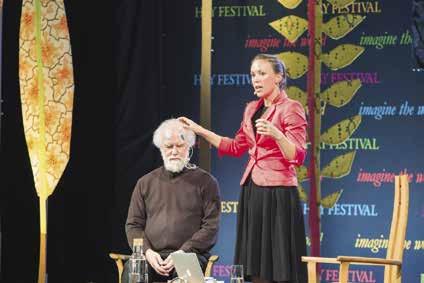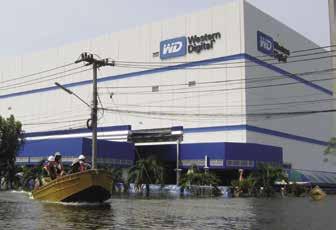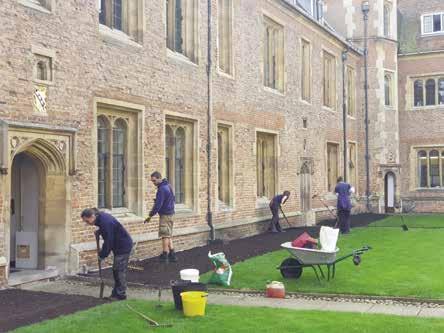
7 minute read
From the Master
The headline news is that we shall begin work on the new Library Building in September. The response to our FUTURE foundations campaign has been, even by recent Magdalene standards, astonishingly generous, with old friends and new contributing with every sign of enthusiasm. The result is that at the time of writing we have raised over £18 million, and are confident that we shall meet our target well within the time we planned. We continue to share regular progress reports with our alumni, students and Fellows; and, apart from some understandable grumbling at the necessity of scaling down next year’s May Ball to an event rather more modest than usual, given the constraints of the building works, there seems to be a fair head of enthusiasm. Funding continues to come in for student support, as necessary as ever, and – as reported in these pages last year – the plan to create a Professorial Chair in African Archaeology based at Magdalene in memory of Nelson Mandela has borne fruit. We shall be welcoming Professor Paul Lane as the first holder of the Jennifer Oppenheimer Chair, and continue to work at extending our reach in Africa (the Derek Cooper scholarships endowed by Standard Bank in Africa have attracted a fine quality of applicants and we look forward to two successful Nigerian candidates joining us).
But questions about domestic access have been very much in everyone’s minds, thanks to a good deal of comment (not always well-informed) in the media. Despite the considerable increase in state school admissions in recent years and a University-wide focus on admitting more British students from minority ethnic backgrounds, there are still sensational stories about a supposed continuing bias against less well-advantaged applicants. The truth is that every Cambridge college devotes a very great amount of time, resource, and energy to persuading candidates from ‘non-traditional’ backgrounds that Cambridge is for them. If progress is not as dramatic as some would like it to be, that is partly because under-representation has many causes, most of them not under our control.
Advertisement
We are very much aware of the conundrum posed by the situation of a candidate with obvious intellectual promise and capacity who just misses an offer, or who is discouraged by family or school or circumstances in general from even applying, a candidate whose situation means that their hopes and expectations are not nurtured as they should be or who are likely to do rather less well than someone from an environment more used to Oxbridge applications. Many of you will have noted the initiative announced by our new Vice-Chancellor to provide the opportunity of a period of ‘transition’ study to address some of these matters. This will need careful planning and a lot of new funding, but we hope that it will give the clear message that we want to do all we can for fairness and diversity. Magdalene is committed to supporting these
plans as they mature; and meanwhile our outreach in Merseyside and North Wales continues, with much success. One of the most positive events in this connection was a session organised jointly with Churchill College at which the Education Secretary of the Welsh Assembly spoke in the Cripps Auditorium about issues affecting schools in Wales to a very lively and engaged group of Welsh undergraduates from across the University. As always, and as these pages have so often stressed, our undergraduates are our best ambassadors, and we were able to discuss ideas for still more direct involvement in our target area in North Wales. And meanwhile, we continue to be hugely grateful to all our (many) alumni who so readily support our various initiatives to lessen the financial burden on students and to enable us to make the credible claim that no-one will be prevented by financial challenge or hardship from joining our student community.
But outside pressure on the Higher Education world continues to increase, with a regulatory framework that shows little sympathy with the actual constraints of university life, and a continuing obsession with quantifying output and impact in ways that are adversely affecting the morale of the academic profession. This spring’s strike action by university teachers, a highly unusual step, certainly not lightly taken by those involved, illustrated rather dramatically the sense of being in every way undervalued as a profession. Cambridge is shielded from some of the worst of the new climate in HE, and the stories of bullying and unjust treatment of experienced scholars that one hears occasionally from other universities are thankfully rare here. But it can’t be denied that the messages coming from government and often media as well do not exactly suggest that Britain’s universities are seen as a great national asset.
Which is why it is all the more welcome when some of our own make their mark as effective and popular communicators. Dr Hannah Critchlow, our Outreach Fellow for the sciences, has already made a stellar reputation in this way, and her new book on consciousness (reviewed pp 101-103) was launched at the Hay Book Festival this May at an event attended by about 1500 people – including a significant body of alumni, who had been invited to the launch and to a reception afterwards. This cheerful occasion (the sun made a brief appearance through the traditional Hay downpours) gave me the selfish pleasure of introducing a number of Magdalene men and women to the glories of the Hay Festival for the first time. Hannah is not unique in being able to share her research with panache and lucidity with a wide audience; but it is very satisfying to know that our College’s name is associated with the work of serious popular education and the creation of a literate and critical public.
Academic results this year are a bit harder to analyse than usual, as new regulations about information-sharing have now come into force. But a rough and ready survey of what we do know at the time of writing assures us that once
again we have over 90% of our finalists leaving with a First or Upper Second. The first and second years are showing fewer Firsts, but also very few II.2s and practically no Thirds. As usual, a quite strong showing in Maths and Engineering, some excellent results in MML – and, blowing my tribal trumpet, some very satisfying Firsts in Theology! The academic level of the College is, in other words, keeping well up to scratch, and this is a continuing credit to our Tutorial team and to a large body of dedicated Directors of Studies and supervisors; warmest thanks to them all.
Some statistics are a little more public. This year on the river – as you will read elsewhere in these pages – produced some spectacular successes, above all the historic ‘quadruple overbump’ (no, I didn’t know what that was either when I first heard) achieved by M4, captained by the Chaplain, Nick Widdows, whose spiritual and physical encouragement to a boat of somewhat untypical rowers brought a unique flavour to this year’s events. Nick’s departure to a parish in Cornwall is universally lamented; he has not only more than tripled the size of the Chapel congregation, but has been a friend and support in every aspect and at every level of College life, accessible, unobtrusively and imaginatively kind, quietly inspiring. It is not easy to say how much he will be missed, and we wish him and Claire and the children all good things in St Ives.
Barry Holman’s retirement after seventeen years as Clerk of Works (taking up new responsibilities as a caretaker at his local primary school) also marks a significant loss to our community life. Barry’s ready response to needs, in season and out, his warmth and wit and obvious dedication to Magdalene have been a really important element in College, and he leaves with much gratitude and affection on all sides.
Staff and administrative changes and the personal stress this can bring, pressures on academics, the continuing national uncertainty about the future of our international relations – all this reminds us that Magdalene is not exempt from the wintry environment gripping so many of our institutions and our public debates. We are still living in a sort of limbo, where major national challenges all take second place to the ever more tangled question of our exit from the EU, and there is a really dangerous sense of treading water in many crucial areas – health, housing, welfare, transport and so on. What lies ahead in the next year is even less predictable than usual, and it is hard to know just how we best prepare for the range of possible challenges. But what we can do – and what we know how to do here – is to continue to hold together the ideals of education and common life, the building of a solid and supportive community here and an intelligent, compassionate global perspective. I know that our current students and our alumni alike will expect nothing less from us. Thank you to all, here in Cambridge and more widely, who help us work and plan for this. R D W










